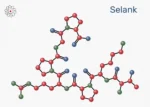What Is Adipotide (FTPP)?
Adipotide, also known as Prohibitin-TP01 and abbreviated as FTPP, is a synthetically made proapoptotic peptide with a unique function, potentially targeting and affecting various types of fat cells. Speculative research suggests that Adipotide might aim to reduce the number of fat cells by impacting the blood supply to adipocytes. It is suggested to target proteins present on the walls of blood vessels supplying adipocytes, potentially interfering with and disrupting the blood supply, resulting in the reabsorption and metabolism of fat cells.
According to research, Adipotide FTPP might selectively target the blood vessels supplying fat cells while potentially sparing other blood vessels responsible for supplying organs and tissues. Research conducted on monkeys, indicates that Adipotide may be associated with weight loss and potentially influence insulin sensitivity, thereby speculatively contributing to the management of conditions like type 2 diabetes.
Weight
Starting in 2011, research was initiated on Adipotide to explore its potential impact on weight loss. Details from preclinical research on Rhesus monkeys suggest that the exposure to Adipotide resulted in a targeted and highly selective apoptosis of blood vessels supplying white fat adipocytes. This process lead to the ischemic death of affected adipocytes, causing significant weight loss.
Researchers have suggested an intriguing side effect, where exposure to Adipotide reduced weight through fat loss and also decreased overall food consumption in test animals, suggesting a role in appetite reduction and weight loss. The selectivity of Adipotide in targeting the vasculature of fat cells suggests that the presence of a protein receptor called Prohibitin might play a role. Prohibitin is considered to be selectively present in the vasculature of fat and cancer cells, and Adipotide may interact with this protein to induce apoptosis in white adipocytes.
Cancer
The sustenance of cancer cells might depend on their blood supply. In cancer research, targeting the blood supply of cancer cells has been explored. Adipotide has been suggested to interact with protein receptor Prohibitin, found on the walls of blood vessels supplying cancer cells. Adipotide might target cancer cells, leading to their death by ischemia.
Considering that pProhibitin is selectively present in cancer and fat cells, the study of Adipotide in anti-cancer research might yield positive results, as suggested by advanced studies which indicate that Adipotide selectively targets cancer cells while protecting surrounding cells and tissues.
Glucose Tolerance
Glucose tolerance refers to the biological response of higher-than-usual glucose levels. A test called OGTT, or the oral glucose tolerance test, measures this response through introduction of a set amount of high glucose and measuring corresponding blood glucose levels. Research suggests that if Adipotide leads to significant weight loss by burning white adipocytes, it might potentially contribute to changes in body mass index and, speculatively, improved insulin sensitivity. In essence, Adipotide might cause a decline in fatty cells and could potentially lead to fat loss.
Disclaimer: The products mentioned are not intended for human or animal consumption. Research chemicals are intended solely for laboratory experimentation and/or in-vitro testing. Bodily introduction of any sort is strictly prohibited by law. All purchases are limited to licensed researchers and/or qualified professionals. All information shared in this article is for educational purposes only.






